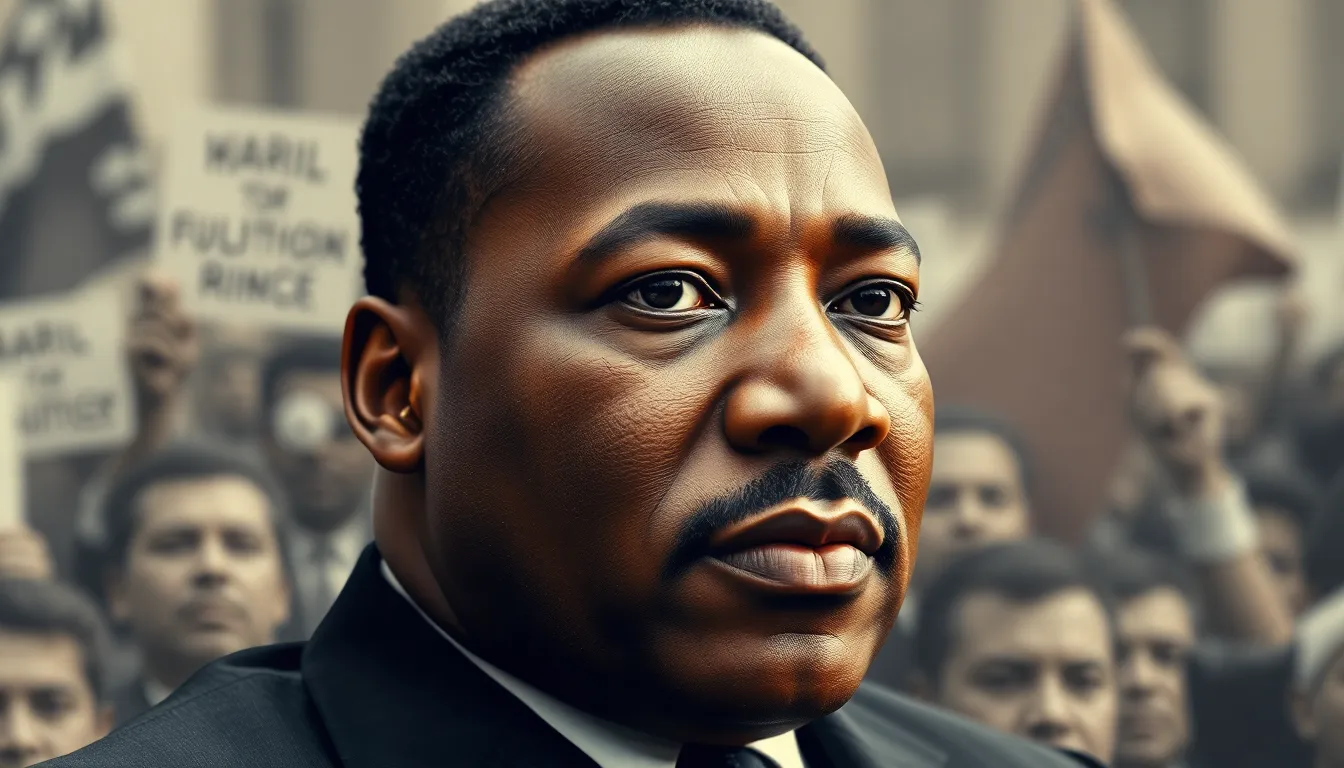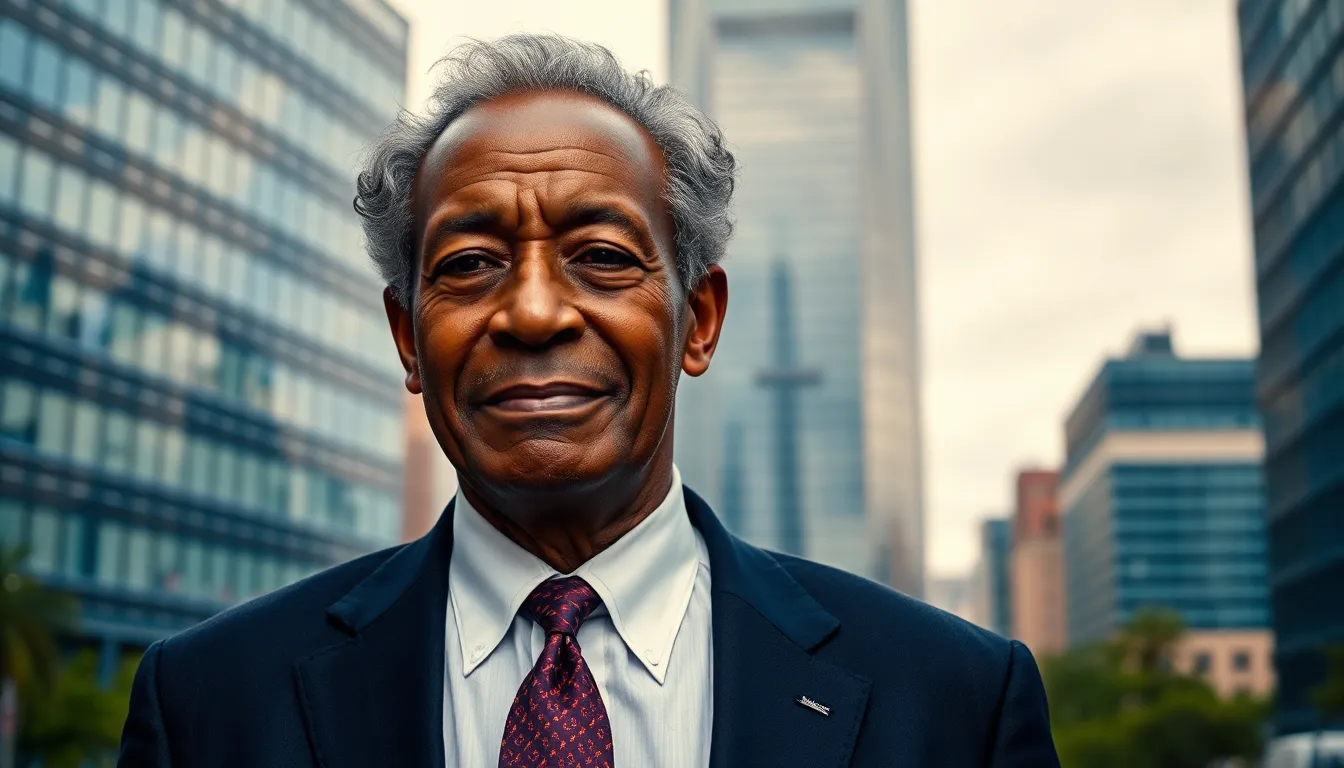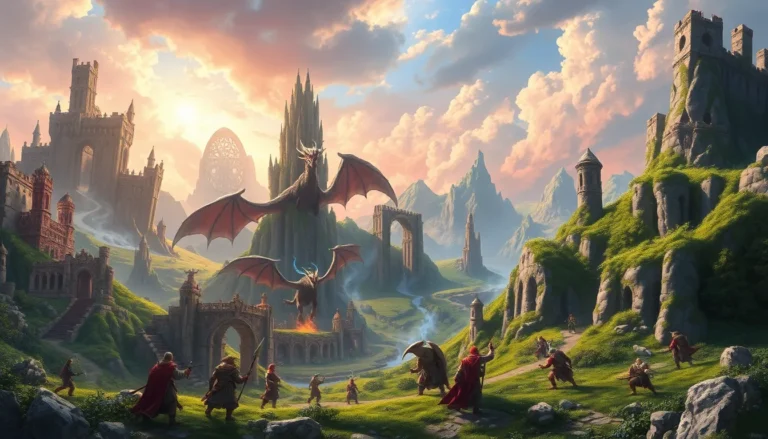Table of Contents
ToggleImagine if Martin Luther King Jr. were still around today. He’d be celebrating his birthday with a cake big enough to feed a small nation. Born on January 15, 1929, he’d be turning 95 this year. That’s right—95 years of wisdom, charisma, and probably some fantastic stories about how he navigated the world of civil rights with grace and humor.
In a world that often feels divided, it’s fascinating to think about what King would say and do in today’s society. Would he have a podcast? A YouTube channel? Or maybe he’d just be shaking his head at the state of social media. Join the journey as we explore how old Martin Luther King Jr. would be today and reflect on his enduring legacy in our lives.
Historical Significance of Martin Luther King Jr.
Martin Luther King Jr. played a crucial role in advancing civil rights in the United States. His influence continues to resonate today, making his legacy incredibly significant.
Early Life and Background
Born on January 15, 1929, in Atlanta, Georgia, King grew up in a modest but educated environment. His father served as a pastor, instilling strong values in him early on. Atlanta’s rich cultural history shaped his perspectives on justice and equality. At age 15, King enrolled at Morehouse College. He graduated with a degree in sociology in 1948. His educational journey continued at Crozer Theological Seminary, where he earned a Bachelor of Divinity. These formative experiences forged King’s commitment to nonviolence and social justice.
Contribution to Civil Rights
King became a prominent leader during the Civil Rights Movement. In 1955, he led the Montgomery Bus Boycott in response to Rosa Parks’ arrest, attracting national attention. His commitment to nonviolent resistance set a powerful example for activists. The Southern Christian Leadership Conference, which he co-founded in 1957, played a pivotal role in organizing grassroots campaigns. Key events, like the March on Washington in 1963, further solidified his influence. His iconic “I Have a Dream” speech inspired millions and called for racial equality. King’s efforts led to significant legislative changes, notably the Civil Rights Act of 1964 and the Voting Rights Act of 1965. His legacy serves as a foundation for ongoing struggles for social justice.
Calculating the Age of MLK Today

Martin Luther King Jr. was born on January 15, 1929. Calculating his current age requires knowing the present year, which is 2024. By subtracting 1929 from 2024, one finds that King would be 95 years old today.
Birthdate and Year of Calculation
January 15, 1929 marks the birthdate of Martin Luther King Jr. This date provides a clear starting point for his age calculations. In 2024, the year of reference, King would celebrate his 95th birthday. His early life and experiences greatly influenced his commitment to civil rights. Understanding his age today connects directly with the enduring legacy he built.
How to Determine His Age
Determining his age involves a simple mathematical calculation. Start by taking the current year and subtracting the birth year. Performing the subtraction, 2024 minus 1929 equals 95. This confirms that MLK would be 95 years old today. Reflecting on this age brings attention to his significant impact, making his contributions feel ever more relevant in contemporary discussions.
Impact of MLK’s Legacy
Martin Luther King Jr.’s legacy profoundly shaped the landscape of civil rights in America. His commitment to justice and equality remains a cornerstone for ongoing movements.
Influence on Civil Rights Movement
King’s leadership during the Civil Rights Movement inspired countless individuals to seek change. He spearheaded initiatives like the Montgomery Bus Boycott, setting a precedent for nonviolent resistance. Major events, such as the March on Washington, showcased his ability to rally diverse groups. His “I Have a Dream” speech galvanized public opinion and called for racial equality. Legislative milestones, including the Civil Rights Act of 1964 and the Voting Rights Act of 1965, directly resulted from his activism. These achievements established a framework for future generations to continue the fight for social justice.
Continuing Relevance Today
Today’s activists draw inspiration from King’s principles of nonviolence and civil disobedience. The issues he championed, like racial injustice and economic inequality, still resonate in modern society. Many movements, including Black Lives Matter, echo King’s call for systemic change. Public discussions surrounding social justice initiatives constantly reference his philosophies. Educational programs integrate King’s teachings, ensuring his insights reach new audiences. People celebrate his birthday as a day of service, emphasizing the importance of community engagement. His legacy fosters ongoing dialogue about equality, urging individuals to advocate for justice in various forms.
Public Perception of MLK Over Time
Public perception of Martin Luther King Jr. has evolved significantly since his assassination in 1968. As time passes, his contributions to civil rights attract more recognition and respect.
Changing Narratives and Recognition
Changing narratives reflect how society views King’s legacy. Initially, he faced criticism and opposition during the Civil Rights Movement; however, that perception shifted in the decades following his death. Researchers, historians, and activists highlight his nonviolent philosophy more prominently now. Acknowledgment of his fight against racial injustice expands, showcasing his commitment to social justice and equality. Consequently, public discussions increasingly emphasize his role in promoting peace and healing in a divided nation. Schools incorporate his teachings into curricula, helping new generations understand his impact on American society.
Commemorations and Celebrations
Commemorations of King’s life and work amplify the public’s appreciation for his legacy. Annually, Martin Luther King Jr. Day rekindles conversations about civil rights and social justice. Various events take place across the country, including parades, community service projects, and educational workshops. Local governments and organizations also dedicate spaces in honor of King, emphasizing his enduring influence. Memorials and statues serve as reminders of his commitment; one prominent example includes the Martin Luther King Jr. Memorial in Washington, D.C. These celebrations encourage individuals to reflect on King’s vision, inspiring continued advocacy for justice and equality.
Reflecting on what Martin Luther King Jr. would be like at 95 years old reveals the timeless nature of his message. His vision of equality and justice remains crucial in today’s society. As contemporary issues continue to challenge communities, King’s teachings inspire new generations to advocate for change.
The legacy he left behind is not just a historical account but a living call to action. His principles of nonviolence and social justice resonate deeply with current movements striving for equality. Celebrating his life and contributions encourages ongoing dialogue about civil rights and reminds everyone of the power of collective action.
King’s influence is felt daily, urging individuals to engage in meaningful conversations and actions that promote justice and equality for all.




